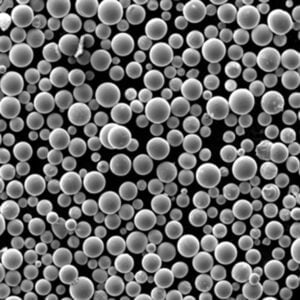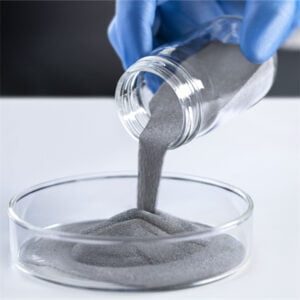진공 불활성 가스 원자화
목차
개요
첨단 제조 분야에서 소재의 완벽함을 추구하면서 수많은 정교한 기술이 개발되었습니다. 이러한 혁신적인 방법 중 하나는 진공 불활성 가스 원자화 (VIGA). 이 공정은 적층 제조, 분말 야금 및 특수 코팅과 같은 다양한 응용 분야에 필수적인 고품질 금속 분말을 생산하는 데 중요한 역할을 합니다. 이 글에서는 VIGA의 프로세스, 이점, 한계 및 응용 분야를 살펴보면서 VIGA의 복잡성에 대해 자세히 살펴봅니다.
진공 불활성 가스 원자화 개요
진공 불활성 가스 분무(VIGA)는 미세하고 구형의 금속 분말을 생산하는 데 사용되는 최첨단 방법입니다. 이 공정은 진공 상태에서 금속을 녹인 다음 불활성 가스를 도입하여 용융 금속을 작은 방울로 원자화하여 미세한 분말로 응고시키는 과정을 포함합니다. VIGA는 입자 크기가 제어된 고순도 분말을 생산하는 능력으로 유명하며 고정밀 산업에서 없어서는 안 될 필수 요소입니다.
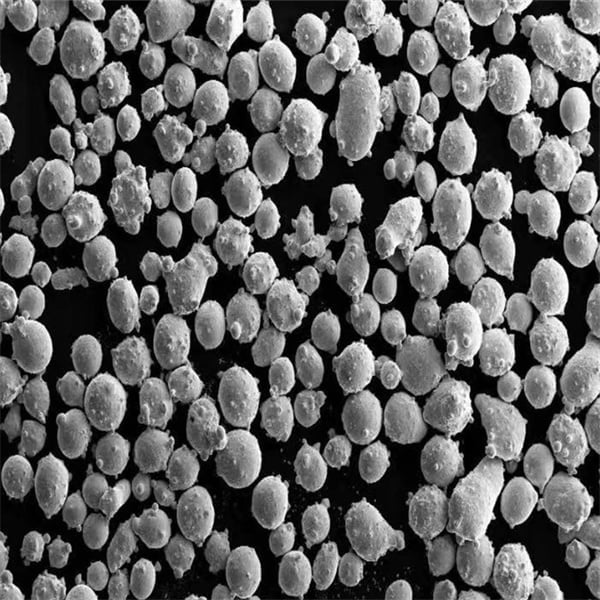
어떻게 진공 불활성 가스 원자화 공장
VIGA는 우수한 품질의 금속 분말을 생산하기 위해 통제된 환경에서 운영됩니다. 다음은 공정의 단계별 분석입니다:
- 녹는: 금속 또는 합금을 진공 유도 용광로에서 녹입니다.
- 원자화: 용융 금속은 노즐을 통해 불활성 가스(예: 아르곤 또는 질소)의 고압 흐름에 의해 분무되는 챔버로 부어집니다.
- 고형화: 작은 금속 방울이 빠르게 냉각되어 미세한 구형 분말로 굳어집니다.
- 컬렉션: 분말을 챔버에 수집하고 불활성 가스로부터 분리한 후 체질하여 원하는 입자 크기 분포를 얻습니다.
VIGA에서 생산하는 주요 금속 분말 모델
VIGA 공정은 특정 용도에 맞는 고유한 특성을 가진 다양한 금속 분말을 생산할 수 있습니다. 다음은 몇 가지 주목할 만한 모델입니다:
| 금속 분말 모델 | 구성 | 속성 | 애플리케이션 |
|---|---|---|---|
| 316L 스테인리스 스틸 | Fe-16.5Cr-10Ni-2Mo | 높은 내식성, 우수한 용접성 | 의료용 임플란트, 항공우주 부품 |
| Ti-6Al-4V | Ti-6Al-4V | 높은 강도 대 중량 비율, 생체 적합성 | 항공우주 부품, 생체의료 기기 |
| AlSi10Mg | Al-10Si-0.4Mg | 가볍고 우수한 열 전도성 | 자동차 부품, 열교환기 |
| 인코넬 718 | Ni-52Cr-19Fe-5Nb-3Mo-1Ti | 고온 저항성, 내식성 | 터빈 블레이드, 원자로 |
| 구리 | 퓨어 Cu | 뛰어난 전기 및 열 전도성 | 전기 부품, 방열판 |
| 마레이징 스틸(18Ni300) | Fe-18Ni-9Co-5Mo-1.5Ti | 높은 강도, 우수한 인성 | 툴링, 고성능 부품 |
| 코발트-크롬(CoCrMo) | Co-28Cr-6Mo | 높은 내마모성, 생체 적합성 | 치과 임플란트, 정형외과용 장치 |
| 니켈 기반 초합금(하스텔로이 X) | Ni-22Cr-18Fe-9Mo | 탁월한 산화 및 내식성 | 항공우주, 화학 공정 |
| 알루미늄 합금 7075 | Al-5.6Zn-2.5Mg-1.6Cu | 고강도, 우수한 내피로성 | 항공우주 프레임, 스포츠 용품 |
| 스텔라이트 21 | Co-28Cr-4Mo | 내마모성, 고온 안정성 | 절삭 공구, 엔진 부품 |
진공 불활성 기체 분무의 응용 분야
VIGA에서 생산되는 분말의 다목적성은 다양한 산업 분야에서 수많은 응용 분야를 열어줍니다. 다음은 가장 중요한 몇 가지 용도입니다:
| 산업 | 애플리케이션 |
|---|---|
| 항공우주 | 터빈 블레이드, 구조 부품, 패스너 |
| 의료 | 정형외과 임플란트, 치과 보철물 |
| 자동차 | 엔진 부품, 경량 구조 부품 |
| 전자 제품 | 전도성 잉크, 납땜 재료 |
| 에너지 | 원자로, 연료 전지 |
| 툴링 | 절삭 공구, 금형, 다이 |
| 적층 제조 | 3D 프린팅, 프로토타이핑 |
| 코팅 | 열 차단 코팅, 내마모성 코팅 |
장점 진공 불활성 가스 원자화
VIGA는 금속 분말 생산에 선호되는 몇 가지 장점을 제공합니다:
- 고순도: 진공 환경은 오염을 최소화하여 고순도 분말을 보장합니다.
- 제어된 입자 크기: 분무 매개변수를 정밀하게 제어하여 균일한 입자 크기를 구현합니다.
- 구형 입자: 이 공정은 구형 분말을 생산하여 유동성과 포장 밀도를 향상시킵니다.
- 다용도성: 다양한 금속 및 합금 가공 가능.
- 산화 감소: 불활성 가스 환경은 산화를 줄여 파우더의 특성을 보존합니다.
진공 불활성 가스 분무의 단점
많은 장점에도 불구하고 VIGA에는 몇 가지 한계가 있습니다:
- 높은 비용: 다른 분무 방식에 비해 장비 및 운영 비용이 상대적으로 높습니다.
- 복잡성: 이 프로세스에는 정교한 제어 시스템과 숙련된 작업자가 필요합니다.
- 제한된 생산 규모: 일반적으로 VIGA는 중소규모 제작에 더 적합합니다.
VIGA와 다른 분무 방법의 비교
분무 방식을 선택할 때는 물 분무 및 가스 분무와 같은 다른 기법과 VIGA를 비교하는 것이 중요합니다. 비교 방법은 다음과 같습니다:
| 방법 | 파티클 모양 | 순도 | 비용 | 생산 규모 | 애플리케이션 |
|---|---|---|---|---|---|
| VIGA | 구형 | 높음 | 높음 | Medium | 고정밀 산업, 항공우주 |
| 물 분무 | 불규칙 | 보통 | 낮음 | 높음 | 분말 야금, 철강 분말 |
| 가스 분무 | 구형 | 높음 | 보통 | Medium | 적층 제조, 특수 합금 |
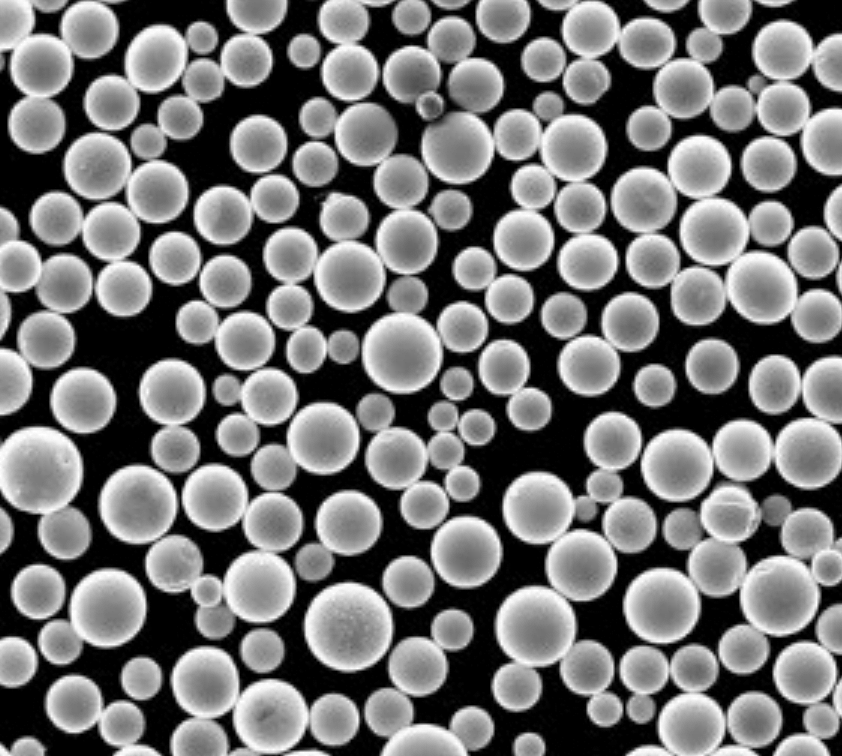
사양, 크기 및 표준
일관성과 품질을 보장하기 위해 VIGA를 통해 생산되는 금속 분말은 특정 표준과 사양을 준수합니다:
| 금속분말 | 입자 크기 범위(µm) | 표준 |
|---|---|---|
| 316L 스테인리스 스틸 | 15-45, 45-150 | ASTM A276, ISO 5832-1 |
| Ti-6Al-4V | 15-53, 53-150 | ASTM F2924, ISO 5832-3 |
| AlSi10Mg | 20-63, 63-125 | ASTM B928, ISO 209-1 |
| 인코넬 718 | 15-45, 45-150 | ASTM B637, ISO 6208 |
| 구리 | 10-75, 75-150 | ASTM B216, ISO 3497 |
| 마레이징 스틸(18Ni300) | 15-45, 45-150 | ASTM A646, ISO 4955 |
| 코발트-크롬(CoCrMo) | 20-53, 53-150 | ASTM F1537, ISO 5832-4 |
| 니켈 기반 초합금(하스텔로이 X) | 15-53, 53-150 | ASTM B435, ISO 6208 |
| 알루미늄 합금 7075 | 20-63, 63-125 | ASTM B209, ISO 6362-2 |
| 스텔라이트 21 | 20-63, 63-150 | ASTM F75, ISO 5832-4 |
공급업체 및 가격 세부 정보
신뢰할 수 있는 공급업체를 찾고 가격 세부 정보를 이해하는 것은 조달에 필수적입니다. 다음은 몇 가지 주요 공급업체와 그 가격을 요약한 것입니다:
| 공급업체 | 제공되는 금속 분말 | 가격 범위(kg당) | 위치 |
|---|---|---|---|
| 샌드빅 오스프리 | 스테인리스 스틸, 티타늄 | $150 – $300 | 스웨덴 |
| 카펜터 기술 | 니켈 합금, 코발트 합금 | $200 – $500 | 미국 |
| 회가나스 AB | 강철 분말, 알루미늄 | $50 – $200 | 스웨덴 |
| LPW 기술 | 다양한 합금, 맞춤형 분말 | $100 – $400 | UK |
| AP&C(GE 애디티브) | 티타늄, 알루미늄 | $200 – $600 | 캐나다 |
장단점 비교
정보에 입각한 결정을 내리기 위해서는 VIGA의 장점과 한계를 이해하는 것이 중요합니다:
| 장점 | 단점 |
|---|---|
| 고순도 및 제어된 구성 | 높은 장비 및 운영 비용 |
| 유동성이 좋은 구형 입자 | 숙련된 운영자 필요 |
| 금속 및 합금 유형의 다양성 | 중소규모 생산으로 제한 |
| 불활성 가스로 인한 산화 감소 | 엄격한 제어가 필요한 복잡한 프로세스 |
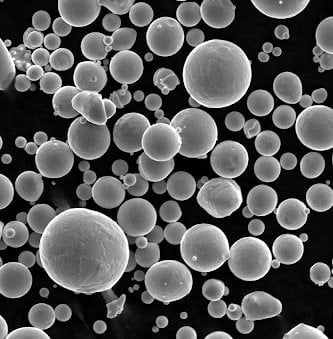
자주 묻는 질문
| 질문 | 답변 |
|---|---|
| VIGA는 어떤 용도로 사용되나요? | VIGA는 항공우주, 의료 및 적층 제조 분야에 사용되는 고품질 금속 분말을 생산하는 데 사용됩니다. |
| VIGA는 가스 분무와 어떻게 다른가요? | VIGA는 진공 및 불활성 가스를 사용하여 오염과 산화를 최소화하여 고순도 분말을 생산합니다. |
| VIGA로 어떤 금속을 가공할 수 있나요? | 스테인리스 스틸, 티타늄, 알루미늄, 니켈 기반 초합금을 포함한 다양한 금속 및 합금을 사용할 수 있습니다. |
| VIGA로 달성할 수 있는 입자 크기 범위는 어떻게 되나요? | 일반적으로 VIGA는 입자 크기가 10µm~150µm인 분말을 생산할 수 있습니다. |
| VIGA는 비용 효율적입니까? | VIGA는 높은 품질과 정밀도를 제공하지만 일반적으로 다른 분무 방식에 비해 가격이 비쌉니다. |
결론적으로 진공 불활성 가스 분무는 다양한 고정밀 응용 분야에 필수적인 고품질 금속 분말을 생산하는 데 있어 최고의 기술입니다. 입자 크기가 제어된 구형의 고순도 분말을 생산할 수 있기 때문에 항공 우주에서 의료용 임플란트에 이르기까지 다양한 분야에서 없어서는 안 될 필수 요소입니다. 비용과 복잡성이 높지만, 최고 수준의 재료 성능을 요구하는 응용 분야에서는 단점보다 이점이 더 큰 경우가 많습니다. 산업이 계속 혁신함에 따라 제조의 미래를 형성하는 데 있어 VIGA와 같은 첨단 기술의 역할은 아무리 강조해도 지나치지 않습니다.
공유
중국 칭다오에 본사를 둔 선도적인 적층 제조 솔루션 제공업체인 MET3DP Technology Co. 당사는 산업용 3D 프린팅 장비와 고성능 금속 분말을 전문으로 합니다.
관련 기사
Met3DP 소개
최근 업데이트
제품

3D 프린팅 및 적층 제조용 금속 분말
문의 정보
- 칭다오시, 산둥성, 중국
- [email protected]
- [email protected]
- +86 19116340731








